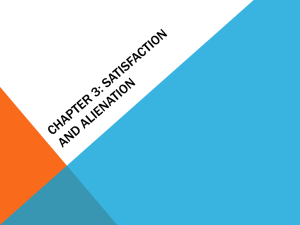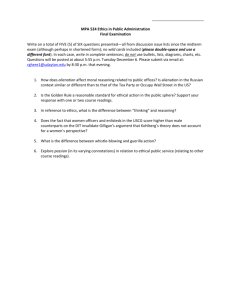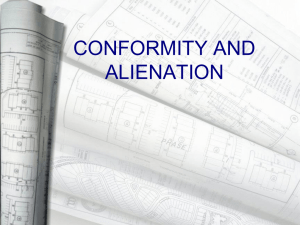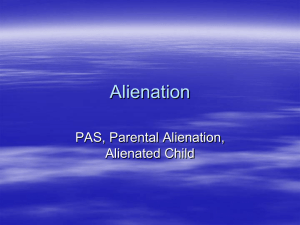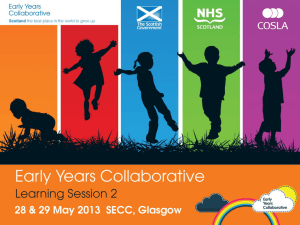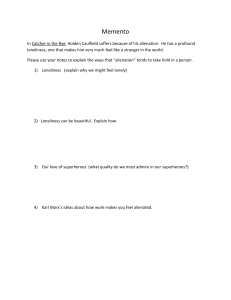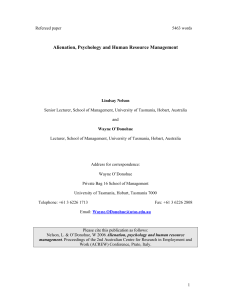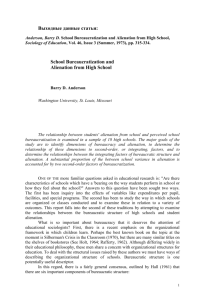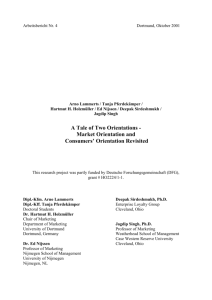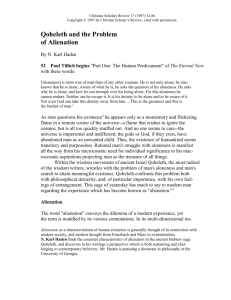LL201.doc - Activating your university user account
advertisement
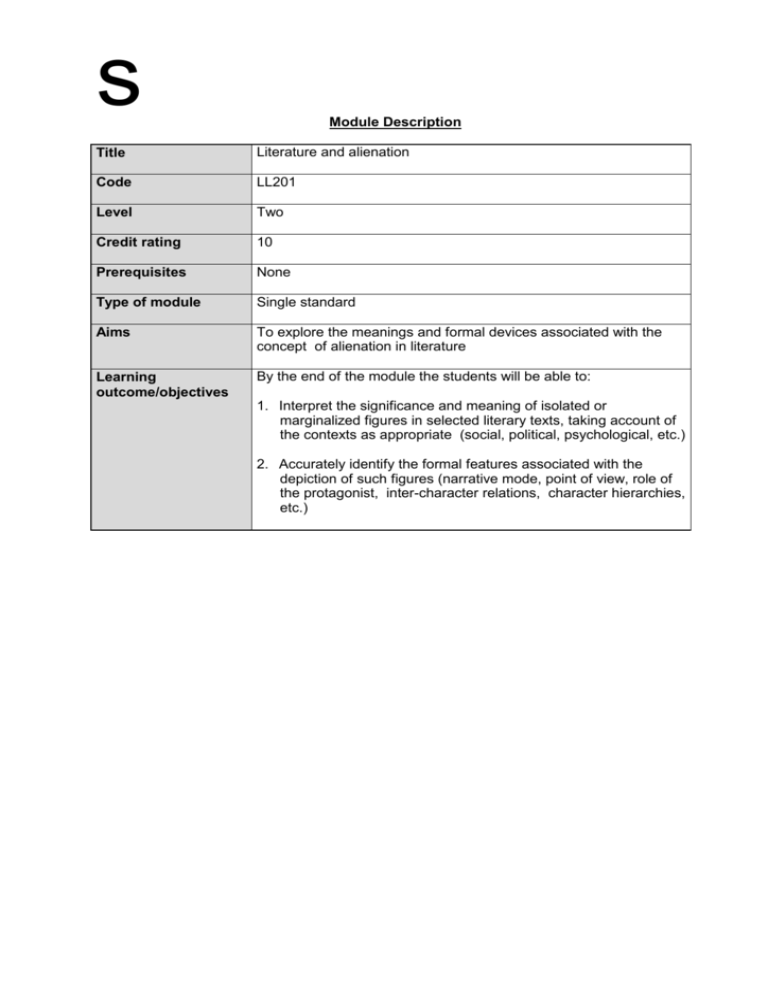
s Module Description Title Literature and alienation Code LL201 Level Two Credit rating 10 Prerequisites None Type of module Single standard Aims To explore the meanings and formal devices associated with the concept of alienation in literature Learning outcome/objectives By the end of the module the students will be able to: 1. Interpret the significance and meaning of isolated or marginalized figures in selected literary texts, taking account of the contexts as appropriate (social, political, psychological, etc.) 2. Accurately identify the formal features associated with the depiction of such figures (narrative mode, point of view, role of the protagonist, inter-character relations, character hierarchies, etc.) Content (for contact time and non-contact time) 1. Different concepts of alienation in literature. The module will examine three to six texts (depending on length), each illustrating an aspect, or aspects, of alienation. The choice of texts may vary from year to year. Because of the importance of the themes of social and philosophical alienation in some non-English literatures, a work or works in translation may be included. Textual variety will be sought. A sample selection might be: The poet-genius, the visionary: selected Romantic poetry Class alienation: Sillitoe, The Loneliness of the Long Distance Runner The private eye: a Raymond Chandler novel Isolated struggle: Hemingway, The Old Man and the Sea The adventurer: a novel by Defoe or Melville Philosophical alienation: Camus or Pushkin, Eugene Onegin, The theme has many ramifications. Other choices of topic and texts might include psychological alienation (Rhys Good Morning Midnight, Ibsen Ghosts, Kafka), social alienation (Dickens, Faulkner, Miller), anti-bourgeois texts (Flaubert, Madame Bovary, Osborne, Look Back in Anger); philosophical alienation (Hamlet, Camus The Outsider, Gogol Dead Soul); domestic isolation (Moggach, Horse Sense); political and ideological alienation (works by Orwell, Voltaire, Celine, Imre Kertesz Fateless,, Kundera The Joke); the artist as exile. 2. Alienation, the formal dimension Topics such as the following may be included: the individual versus the group; the visionary or specially gifted individual versus society the author’s voice, the text-reader relationship narrative modes: the narrator, the narrative voice, point of view etc. different modes of protagonist: the ingenu outsider/ detached observer/ victim/ in works of satire; the hero modes of projection of the ‘I’: monologue, soliloquy etc. Teaching and learning strategies Introductory lecture. Workshop-based small-group activities focussing on specific aspects of the selected texts, with follow-up mini-presentations and debate. Individual projects with tutorial guidance for assessment task. Learning support (include full details of up to 8 titles) Illustrative bibliography: Assessment task Essay 2000 words 100%. The topic may involve a comparative or contrastive study Assessment criteria Successful identification and classification of the kinds of alienation encountered in the texts selected for the assignment (LO1) Competence in critically analysing and interpreting these (LO1) Successful demonstration of the functioning of relevant formal features of the selected texts (LO2) Brief description AEB This module examines the theme of alienation in literature and formal features connected with it. Literature/Linguistics Area Board Module team N. Foxcroft, G.Townsend Semester offered Two Timetable slot(s) - Site where delivered Falmer Date of first approval September 2003 Date of last revision N/a Date of approval of this version Version number September 2003 Replacement for previous module N/a (module code amended from LL205 to LL201 in August 2004 for administrative purposes) Field for which module is acceptable and status in that field BA (Hons) Language Studies Programme(English, French, German, Linguistics) with English Literature/Media – option field Beth Herst (1990), The Dickensian Hero: Selfhood and Alienation in the Dickensian World (London: Weidenfield & Nicholson) C.L.R. James (2001), Mariners, Renegades and Castaways: The Story of Herman Melville and the World We Live In, Dartmouth College: University Press of New England Jack Murray (1991), The Landscapes of Alienation. Ideological Subversion in Kafka, Celine and Levison (Stanford Cal: Stanford University Press) David Patten (1995), Exile: the Sense of Alienation in Modern Russian Letters (Lexington, KY: University Press of Kentucky) Carolyn Porter (1981), Seeing and Being: the Plight of the Participant Observer in Emerson, James, Adams and Faulkner, (Middletown, Conn: Weslyan University Press) Lisa Williams (2001), The Artist as Outsider in the Novels of Toni Morrison and Virginia Woolf (Westport Conn: The Greenwood Press) One Course(s) which module is acceptable and status in course Departmental home BA (Hons) Language Studies Programme (English, French, German, Linguistics) with English Literature/Media – option External examiner(s) Graham MacPhee (t.b.c) School of Languages
